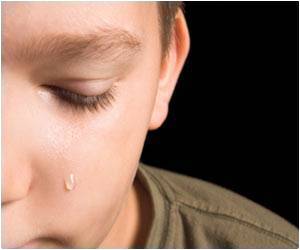- Depression in Children - (https://pubmed.ncbi.nlm.nih.gov/30521218/)
- Childhood depression: a systematic review - (https://pubmed.ncbi.nlm.nih.gov/24092979/)
- Assessment and management of pediatric depression - (https://www.ncbi.nlm.nih.gov/pmc/articles/PMC6532464/)
- Depression in Children and Adolescents: Evaluation and Treatment - (https://pubmed.ncbi.nlm.nih.gov/31730312/)
About
Parenting comes with its share of joys and challenges, but when a child grapples with depression, navigating the complexities of mental health can feel overwhelming. Childhood depression is a serious condition that can impact a child's emotional well-being, academic performance, and social interactions.
As parents, it's essential to recognize the signs, understand the underlying causes, and provide unconditional support and guidance to help your child overcome this formidable adversary.
Did You Know?
Childhood depression affects approximately 3% of children aged 6 to 12 and 6% of teenagers aged 13 to 18, underscoring the importance of early intervention and parental support.What is Childhood Depression?
Childhood depression, also known as pediatric depression, is a serious mental health condition that affects how a child thinks, feels, and behaves. It's essential to distinguish between occasional feelings of sadness, which are normal parts of growing up, and persistent depressive symptoms that interfere with daily functioning and quality of life(1✔ ✔Trusted Source
Depression in Children
Go to source).
Depression in children can manifest in various ways, including:
Emotional symptoms:
Persistent sadness, tearfulness, irritability, anger, or mood swings.Behavioral symptoms:
Social withdrawal, loss of interest in previously enjoyable activities, changes in appetite or sleep patterns, academic decline, and self-harming behaviors.Physical symptoms:
Fatigue, headaches, stomachaches, and complaints of physical ailments without apparent medical cause.
Recognizing the signs of childhood depression early is crucial for timely intervention and support.
What are the Causes of Childhood Depression?
Childhood depression can arise from a complex interplay of genetic, biological, environmental, and psychological factors(2✔ ✔Trusted Source
Childhood depression: a systematic review
Go to source). Some common triggers and risk factors include:
Genetics:
A family history of depression or other mental health disorders can increase a child's susceptibility to depression.Brain chemistry:
Imbalances in neurotransmitters, such as serotonin and dopamine, may contribute to mood disturbances and depression.Traumatic life events:
Loss of a loved one, divorce, abuse, bullying, or significant life changes can trigger depression in children.Chronic stress:
Academic pressure, social challenges, peer conflicts, or family discord can overwhelm a child's coping mechanisms and lead to depressive symptoms.Medical conditions:
Chronic illnesses, neurological disorders, or hormonal imbalances may predispose children to depression.
Understanding the underlying causes of a child's depression can inform treatment decisions and facilitate targeted interventions.
What are the Symptoms of Childhood Depression?
Identifying the symptoms of childhood depression can be challenging, as they may overlap with typical developmental changes or other mental health conditions. However, common signs and symptoms of depression in children include(3✔ ✔Trusted Source
Assessment and management of pediatric depression
Go to source):
- Persistent feelings of sadness, hopelessness, or emptiness.
- Loss of interest or pleasure in activities once enjoyed.
- Changes in appetite or weight, either significant loss or gain.
- Disturbances in sleep patterns, such as insomnia or excessive sleeping.
- Fatigue or low energy levels, even after adequate rest.
- Difficulty concentrating, remembering, or making decisions.
- Feelings of worthlessness or guilt, self-criticism, or self-blame.
- Recurrent thoughts of death, dying, or suicide, or suicide attempts.
Parents need to remain vigilant and seek a professional evaluation if they notice behavioral or emotional changes in their children.
How to Treat Childhood Depression?
Treatment for childhood depression typically involves a multimodal approach tailored to the individual needs of the child and family. Common treatment modalities include(4✔ ✔Trusted Source
Depression in Children and Adolescents: Evaluation and Treatment
Go to source):
Psychotherapy:
Cognitive-behavioral therapy (CBT), interpersonal therapy (IPT), or play therapy can help children develop coping strategies, improve self-esteem, and address underlying issues contributing to depression.Medication:
In some cases, antidepressant medications may be prescribed to alleviate depressive symptoms and rebalance brain chemistry. However, medication should always be used under the close supervision of a qualified healthcare provider, considering potential risks and benefits.Family therapy:
Engaging the entire family in therapy sessions can improve communication, strengthen familial bonds, and address relational dynamics that may impact the child's mental health.Lifestyle modifications:
Encouraging healthy lifestyle habits, such as regular exercise, balanced nutrition, adequate sleep, and stress management techniques, can support overall well-being and complement formal treatment interventions.
Tips for Disciplining a Depressed Child
Disciplining a child with depression requires sensitivity, patience, and empathy. Here are some tips for effectively managing behavior while supporting the child's emotional needs:
Establish clear and consistent rules:
Provide structure and predictability by setting age-appropriate limits and expectations for behavior. Be firm but fair in enforcing consequences for rule violations.Focus on positive reinforcement:
Acknowledge and praise the child's efforts and achievements, no matter how small. Encourage positive behaviors and strengths while gently addressing areas for improvement.Communicate openly and empathetically:
Create a supportive environment where the child feels comfortable expressing their thoughts, feelings, and concerns. Listen actively, validate their emotions, and offer reassurance and encouragement.Encourage healthy coping strategies:
Teach the child healthy ways to manage stress and negative emotions, such as deep breathing exercises, mindfulness techniques, or engaging in hobbies and interests.Seek professional guidance:
Consult with mental health professionals, such as child psychologists or counselors, for additional support and guidance in managing challenging behaviors and emotions.
Dos and Don'ts with Depressed Children
Dos:
- Do validate your child's feelings and experiences without judgment or criticism.
- Do prioritize open and honest communication, fostering trust and emotional connection.
- Do advocate for your child's needs and rights within educational and healthcare settings.
- Do encourage healthy lifestyle habits, including regular physical activity, a nutritious diet, and sufficient sleep.
- Do seek professional help from qualified mental health professionals or specialists in childhood depression.
Don'ts:
- Don't dismiss or minimize your child's feelings or symptoms of depression.
- Don't blame or criticize the child for their condition or struggle with depressive symptoms.
- Don't neglect your own mental health needs as a parent or caregiver; seek support and self-care strategies to manage stress and emotional challenges.
- Don't force the child to conform to unrealistic expectations or social norms; embrace their unique strengths and individuality.
- Don't hesitate to reach out for help if you're concerned about your child's safety or well-being; trust your instincts and take proactive steps to ensure their safety.
Parenting a child with depression requires patience, resilience, and ongoing support. By understanding the causes, symptoms, and treatment options for childhood depression, parents can play a crucial role in promoting their child's mental health and well-being.













